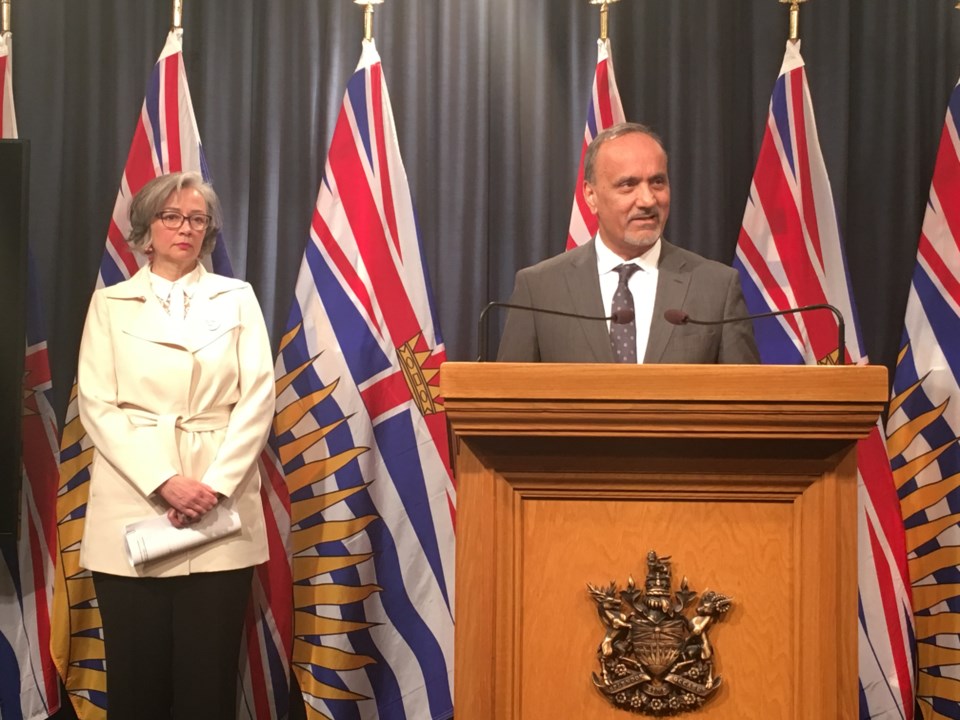This week, BC’s business community breathed a sigh of relief. The NDP government’s long-promised move away from a secret ballot for union certification failed to materialize.
In British Columbia, all certification votes – whether to unionize, change unions, or get out of a union – must be done with a secret ballot, overseen by the Labour Relations Board. The NDP introduced card check in 1993; Gordon Campbell brought back the secret ballot in 2001.
Organized labour has long advocated for card check, and it’s not hard to understand why. Card check makes it easier for unions to get certified – but everyone knowing how everyone else has voted exposes people to intimidation and even threats.
There is data to support this. The Manning Centre – admittedly not exactly a union-friendly source – studied 1,507 union certification votes across Canada.
They found support for unionization tended to drop between initial card check and secret ballot vote, sometimes substantially – in one case by 100%. This indicates either changed minds, or people saying one thing publicly and voting another way, a phenomenon hardly unknown in Canada.
Shortly after forming government in 2017, the NDP had announced they planned sweeping changes to employment standards and the labour code, and appointed a three-person expert panel, with one representative each from labour, business, and an independent.
On union certification, they could not agree – but independent representative (and chair) Michael Fleming preferred keeping the secret ballot, creating a 2-1 majority opinion.
Despite that, rumours abounded that the NDP would adopt card check anyway – as they had repeatedly promised.
Last December, in my year-end interview with Andrew Weaver, I asked him about NDP plans to move away from a secret ballot for union certification.
Another potential storm cloud ahead – an issue where Weaver has publicly disagreed with stated NDP policy – is in labour relations.
Premier John Horgan and Labour Minister Harry Bains have both been clear: they want to do away with secret ballots for union certification, and move to a card check system, where everyone knows whether and how everyone else has voted.
Weaver says he still “believes fundamentally in secret ballot,” but…there’s a crack:
“The one thing that I’m a little more open to discussing is I recognize building trades are different from, say, office trades.”
“When you have people working at fixed location, there is no excuse not to have a secret ballot. If you’re crane operators on a building site, and move onto another building site in six weeks, there might be some discussions we could have"
It sounded then like Weaver was leaving the door slightly ajar. Certainly some construction stakeholders worried about it – and it’s hard to believe the NDP didn’t see an opening.
Six months later, I reminded Weaver of our conversation. He says his support for a secret ballot never wavered – he was simply asking questions and was keeping an open mind.
“I am not an expert,” says Weaver, “so I would appeal to an open expert review – and am open to considering other ways to do it.”
Still, the NDP had openly promised a return to card check, and obviously wanted to deliver – and did everything it could to encourage their CASA partners to change their minds, from meetings with staff, to encouraging unions to make their case.
“I had very respectful dialogues with all the unions I met with,” said Weaver, “I wouldn’t say it was hard convincing – I didn’t feel any pressure.”
No pressure at all? Well…maybe a little. “There was an attempted email campaign (directed at Weaver) that I wouldn’t say was very successful.”
The email explained organized labour’s defence of card check:
Workers have a Charter right to join a union. The law must include a one-step process to unionize without fear or intimidation. I know and understand my rights when I sign my passport, drivers' license or mortgage. Signing a union card should simply mean I want to bargain collectively with my employer.
Eventually, Weaver stopped taking the meeting requests:
“I didn’t see the need to have the same conversation over and over again.”
Weaver says he has since told Horgan there are no hard feelings, appreciates they don’t see things the same way, and that the end result is “better public policy.”
“I honestly think the BC Federation of Labour should be thanking us.”
Doing away with a secret ballot and moving towards a card check system has long been an article of faith for the NDP and organized labour, but it’s wildly unpopular.
As a poll done for The Orca indicated last October, the general public overwhelmingly supports the secret ballot. 79% of British Columbians – including 78% of NDP voters – agreed that a secret ballot should be required for unionizing a given workforce, with only 9% supporting card check.
As we pointed out, that’s ten percentage points less than the number of British Columbians who believe 9/11 was a US government conspiracy.
When introducing the other changes, Bains was quite honest: an NDP majority government would have almost certainly ignored the panel’s majority recommendation – and public opinion – and gone back to a card check system.
In the meantime, the secret ballot is safe – mostly thanks to Andrew Weaver.
Maclean Kay is Editor-in-Chief of The Orca



